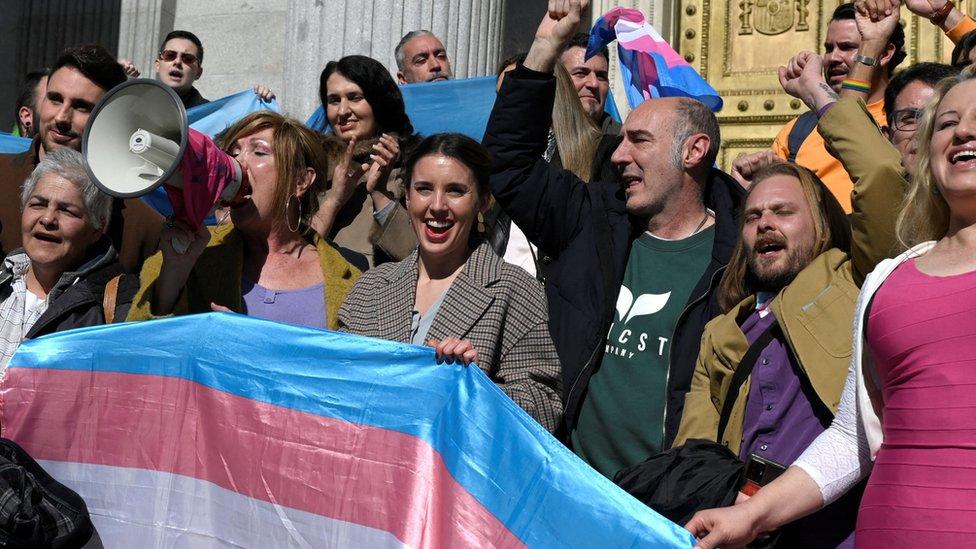Spain's snap election revives issue of national unity
- Published
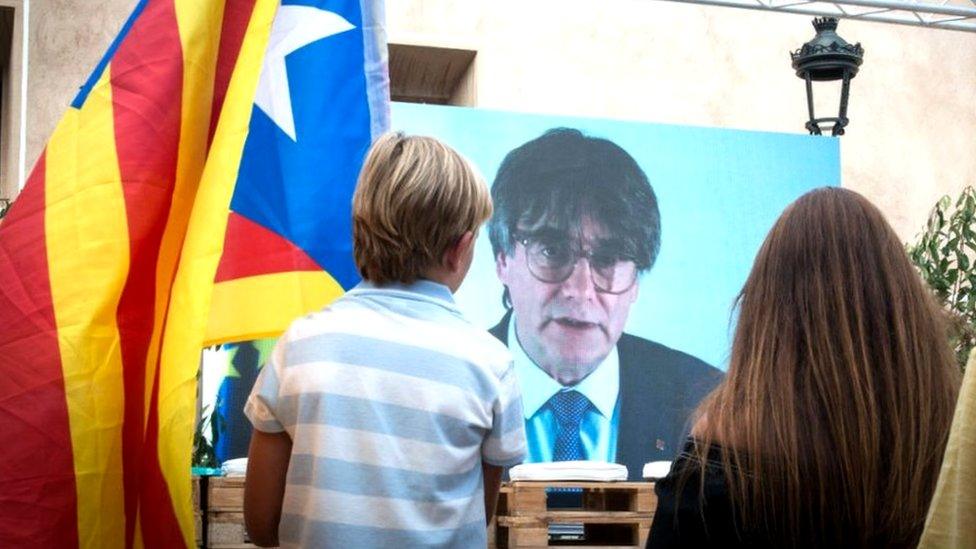
Carles Puigdemont, who fled Catalonia after leading a breakaway independence vote in 2017, appears at rallies remotely
Under the heat of the Barcelona sun, a pro-independence party, Together for Catalonia, is holding a campaign event ahead of Sunday's general election in Spain.
About 40 people are gathered to hear speeches before a video message is shown, recorded by the former president of Catalonia, Carles Puigdemont.
He lambasts the Spanish state, comparing its lack of democratic credentials to Hungary and Poland, and calls for an independent Catalan republic.
It is a low-key event compared to the massive demonstrations that led up to Catalonia's attempt to secede in 2017.
The Spanish authorities responded to that bid by clamping down with police action and temporarily imposing direct rule in the region, while Mr Puigdemont fled to Belgium, where he has remained ever since.
But this Sunday's Spanish general election could have a major impact on the country's simmering territorial issue. The result, many believe, will decide whether the relationship between Catalonia and Madrid improves or flares up once again.
"If the right wins, the situation could complicate in Catalonia," said Lola García, a journalist at La Vanguardia newspaper who wrote an account of the 2017 crisis.
"We might well go back to seeing heightened tensions there."
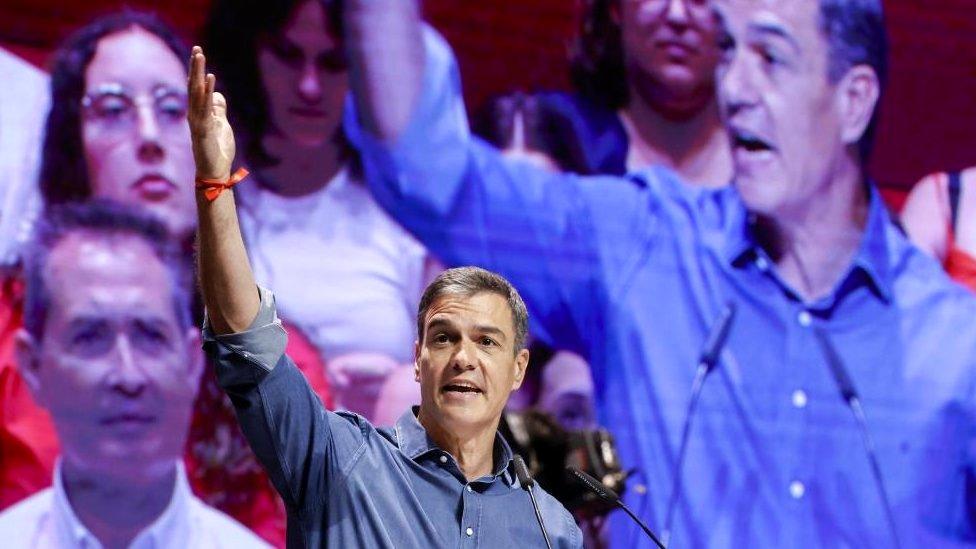
Incumbent Prime Minister Pedro Sánchez has sought to re-engage with pro-independence leaders
Socialist Prime Minister Pedro Sánchez declared improving the febrile atmosphere in Catalonia a priority when he first took office in 2018, and again when he formed a new coalition government in 2020.
With that aim in mind, his administration pardoned nine politicians who had been jailed for their role in the 2017 independence bid.
It also reformed the penal code, eliminating the crime of sedition and modifying the crime of misuse of public funds - both of which changes benefitted Catalan leaders who were facing legal action.
Meanwhile, Mr Sánchez's government has also engaged in slow-moving talks with the pro-independence Catalan administration aimed at resolving the territorial problem.
"Today the situation in Catalonia is nothing like it was in 2017, 2018 or 2019," Mr Sánchez said recently, describing the Socialists as "a party that defends the union of Spain".
However, reducing the tensions in Catalonia has come at a cost for Mr Sánchez.
The conservative People's Party (PP) and far-right Vox have repeatedly attacked him for making concessions to nationalists and for receiving the parliamentary support of the pro-independence Catalan Republican Left (ERC).
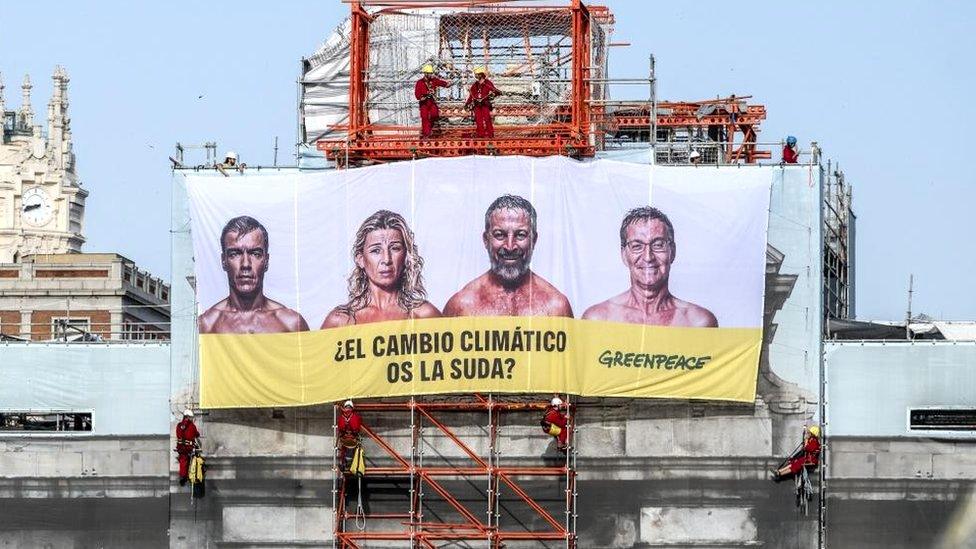
The four main candidates, from left to right: Current PM Pedro Sánchez, Deputy PM and Sumar party leader Yolanda Díaz, Vox party leader Santiago Abascal and Popular Party leader Alberto Núñez Feijóo
His reliance on the parliamentary votes of the Basque nationalists of EH Bildu - the successor to the political wing of the defunct Basque group Eta, which is deemed a terrorist organisation by the EU - has compounded that opprobrium, with some in his own party also expressing unease.
Alberto Núñez Feijóo, the PP's candidate for prime minister, warned that Mr Sánchez has "made Spain a hostage of those who want to break the territorial unity of our country", a message many voters seem to endorse.
The conservative leader has also tacitly criticised Mariano Rajoy, the PP's prime minister during the 2017 Catalan crisis.
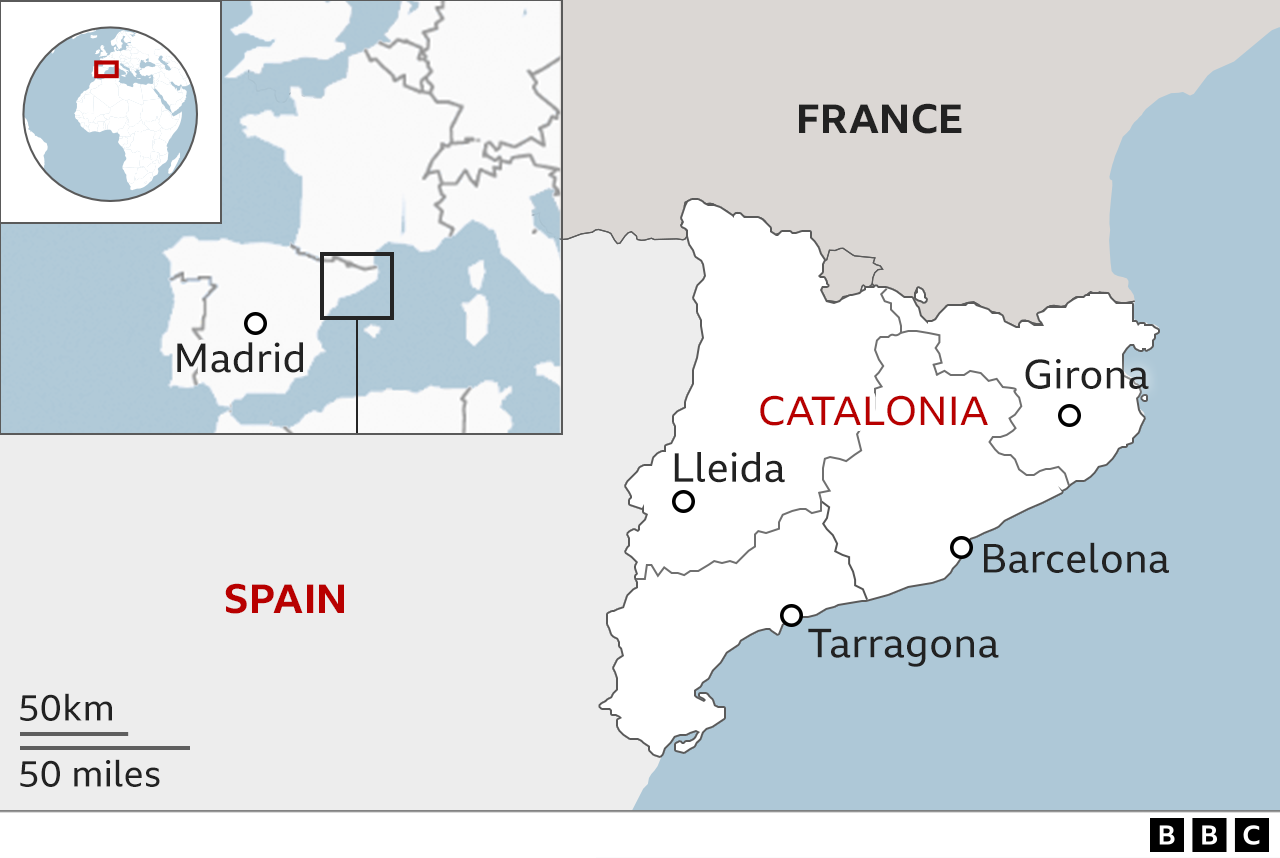
"We probably should have acted earlier and not let things go as far as they did," Mr Núñez Feijóo said, suggesting he would be more proactive than his predecessor.
A Spanish government that is hostile to regional identities could have an upside for the independence movement, reviving it after several years of in-fighting, according to journalist Lola García.
She also believes plans by the Catalan government, led by the moderate ERC, to stage a Madrid-approved referendum on independence in the coming legislature are likely to go nowhere.
"The Catalan government is aware that it will not achieve [a negotiated referendum] either with the PP in government or the Socialists," she said. Instead, she believes the regional administration is pushing for increased powers within its current arrangement as an autonomous region.
With the PP ahead of the Socialists according to most polls, but looking unlikely to secure an absolute majority, it is quite possible that Spain's next government will be formed by the conservatives in a coalition with the hardline unionists of Vox.
We know a PP-Vox government would mean a threat to political freedoms and rights and democratic institutions here
"We already know that a PP-Vox government would mean a threat to political freedoms and rights and democratic institutions here in Catalonia," said Meritxell Serret, minister of Foreign Action and the EU for the Catalan government.
She pointed to areas of Spain where the two right-wing parties have already formed governing partnerships since local elections in May, such as the Valencia region and the Balearic Islands.
In both cases, the new local government has announced plans to eliminate the office for defence of local languages, which opponents see as an attempt to eliminate regional identities.
While Ms Serret says the Catalan government is not satisfied with the concessions made by the Sánchez administration, she frames the possibility of Vox entering a right-wing coalition in dramatic terms.
"Vox have been threatening they will illegalise pro-independence parties, for example," she said.
"We fear, and people fear, that they can represent a step back for our democracy to very dark moments when civil rights [and] freedoms were not only attacked, but were annulled. This is what they represent nowadays."
Related topics
- Published21 July 2023

- Published21 June 2021
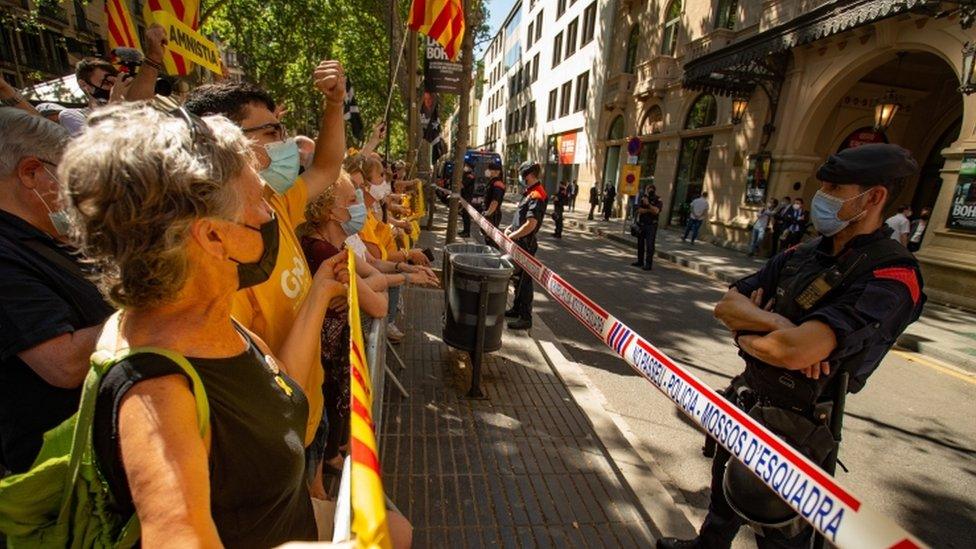
- Published16 February 2023
